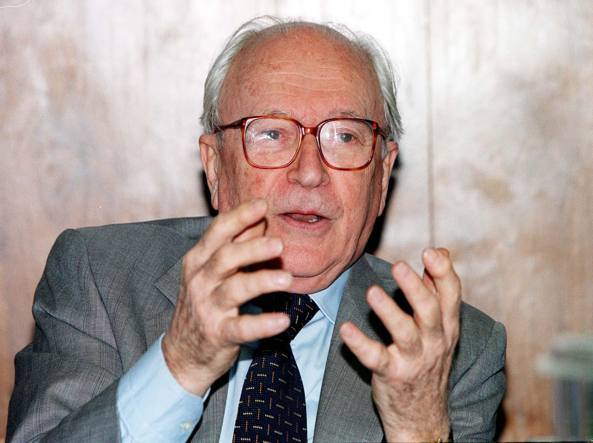I’ll tell you about Arrigo Levi. Signed: Livio Zanotti

"For me, Arrigo Levi was more than the director with whom in over twenty years of work at La Stampa I found the most harmony, he was the most fruitful interlocutor even when we found ourselves disagreeing"
Said thus, for a man who is anything but devoid of practical sense, a writer of strong ethical sentiments and gifted with a polyglot eloquence, more than a habit it may appear a literary vice of those he abhorred, but the character that has profoundly marked his life was certainly the passion with which he lived every moment. Several times becoming the protagonist of those truths that with equal intensity he has tried to deepen himself both in studies and in Italian and international daily events. The sunny goodness that when necessary did not prevent him from expressing sharp judgments, without ever stopping the smile on his lips, could have left the editor of La Stampa baffled, who found himself directing in the terrible years of lead , as well as his friend Henry Kissinger.
For me he was more than the director with whom in over twenty years of work at La Stampa I found greater consonance (which is not an understatement), he was the most fruitful interlocutor even and perhaps above all when we found ourselves disagreeing on some political judgment that emerged from my correspondence from Latin America and then from the Soviet Union, where he himself designated me. These were not easy years, nor small matters. And Arrigo knew both the American South Cone and the Soviet regime very well: he had been a journalist in Moscow before me and the leaders of the CPSU still remembered him, amidst admiration and suspicion; in Buenos Aires he had spent his adolescence and early youth with his family who had found refuge there from the racial laws of fascism. And he went back every time he got the chance
It was his predecessor, Alberto Ronchey, who sent me to Buenos Aires, overcoming various fears and perplexities (they had just murdered the general manager of Fiat, Oberdan Sallustro). First of all, a journalist, he was finally convinced that the imminent return of Peron from the Spanish exile in Argentina and the increasingly dramatic events of Salvador Allende's government in Chile, would have required the space hitherto dedicated to the war in Vietnam, channeled into the newspaper. now in the peace negotiations. With Arrigo, however, the dialogue became almost daily, despite the fact that at that time communications were still rather cumbersome. On May 25, 1973, with the triumph of the popular forces and the defeat of the military dictatorship of Generals Ongania, Levingston and Lanusse, the release of political prisoners, Arrigo made me correct only the name of a street.
He possessed a prodigious memory: he remembered having traveled it a quarter of a century earlier, in a cell phone van belonging to the Peronist police that had arrested him along with many other students who were caught demonstrating for total freedom of teaching. Arrigo was and remained anti-Peronist, nevertheless he had not uncritically assumed the simplistic equation Peronism = fascism, adopted (with rare exceptions) both by liberals and by Marxists of every nuance (and still widely in force in today's publications within the famous and smoky term populism, if devoid of adjectives). The willingness to discuss the dialectical process then underway between the doctrine of the old general, steeped in personalist authoritarianism and interclass corporatism, and the social demands that arose from the same overall development needs of a society plagued by inequalities, was the symbol of his honesty intellectual.
A layman and a respectful unbeliever yet declared, Arrigo was by no means foreign to the religious dimension (he had also studied theology). Not to the ritual aspects and not even to a tension towards the absolute which did not seem to act in his temperament; but in that mysticism that looks at the sacredness of human existence as the essence of freedom itself. In which he believed in all its aspects, to the point of making it a reading canon of the twentieth century, for him anything but short and in any case particularly fraught with warnings, as evidenced by the countless books, articles, conferences offered with a pedagogical spirit still in the long years in which he was councilor of two heads of state, Carlo Azeglio Ciampi and Giorgio Napolitano. The Quirinale was an excellent observatory for some of my conclusions on the world, he told me the last time I went to have a coffee at his house.
Livio Zanotti
This is a machine translation from Italian language of a post published on Start Magazine at the URL https://www.startmag.it/mondo/vi-racconto-arrigo-levi-firmato-livio-zanotti/ on Mon, 24 Aug 2020 04:54:12 +0000.
